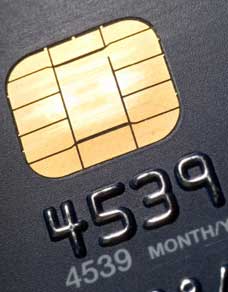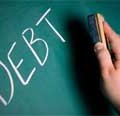Debt is a major struggle for many Americans, and if the situation is not handled early enough, it could easily lead to significant issues. Debt has led to the downfall and reputation damage of many top companies and famous individuals. It is rarely a choice to fall into debt. Financial problems could have originated from theft, continuous business losses, or loss of a job. However, it’s still possible to operate debt-free if you intentionally decide to work on it.
In this article, a Philadelphia bankruptcy lawyer takes time to advise you on how to take charge of your personal finance and start the journey to living a debt-free life:
Acknowledge and List Down Your Debts
The first step to accountability is acknowledging that you’re in debt, figuring out your mistakes, and making a list of everything you owe. However, if a financial mistake is what has dragged you down into this mess, there’s no need to beat yourself up about it as you’ve gotten to the first crucial process of it all.
Create or Adjust Your Budget
After writing down all of your debts, the next vital thing is creating a budget or adjusting your budget if you already have one. Here are the basics:
- Mark Your Income- Your income includes the fixed amount of money you get each month from your job, plus any other side hustle. A good rule of thumb is to put 10% of your monthly income directly into a savings account so that you have money for later.
- Note Your Expenses- Make a list of your regular monthly expenses. These expenses include living payments like rent or mortgage, utility bills like electricity and wifi, car payments, grocery payments, and other consistent, recurring expenses. Add these personal expenses together and subtract the total amount from your income to see what’s left. You should
- Acknowledge Your Debts- After accounting for the cost of living expenses, allocate the remaining monthly income to paying off your debts.
Check Your Credit Score
If you are in debt, it’s almost definite that your credit score is not ideal. It marks how great or bad your financial footage is, and you can dispute errors if any. Lending institutions often use the credit score to check your financial standing when you want a loan and to see if you pay your debts within the required time frame for fair consideration. In this situation, though, you are not checking your credit score for that purpose. Checking it ensures that you improve your credit score as you check on every wrong financial move you make as you take a step towards improving.
Set Financial Goals
It can be tricky to set financial goals, especially when you’re trying to settle your debts. However, this is the surest way to make sure that you’re fully in charge of your financial growth to solid financial ground. Also, you may have gotten into this financial debt situation because you didn’t have a fallback plan when you didn’t have enough money or when the bad eventualities happened.
An emergency fund will ensure that you don’t add to your debts by borrowing money or using your credit card to cater to unplanned emergencies. Imagine the eventuality of you losing your job or a steady source of income? At least an emergency fund will sustain you for a while before getting a stable source of income.
Strategize on a Payment Plan
Every debt is unique and has a different repayment period time frame. Arrange your debts in the hierarchy of high-interest rate debts to the low-interest rate debts. It’s advisable to clear your debts monthly, starting from the smallest debts, and then work towards settling them. It also boosts your esteem that it’s possible to clear your debts once you put your mind to them. Later on, you can start your journey towards clearing the large debt till you’re completely debt-free.
You may also try the “avalanche method” of paying off your debts. Begin by prioritizing the debt with the highest interest rate, not the highest amount owed. This way, you start to take out the most significant contributors to your debt over time and remove them from future payments. Continue by paying off each subsequent highest interest rate.
Get Professional Help
No one is a wizard at making clever financial moves all the time, especially when it comes to debts. Therefore, if you’ve been having money management issues for the longest time, it would be wise to consult a debt specialist. These experts will give the best tips to help you manage your debt. They can also help renegotiate the interest rates with your creditors or the initially agreed upon repayment strategy.
Well, we don’t want you to also get into another debt specialist payment plan for the consultation. So, it would be wise to ask them to give you a payment tracking method that you can use to track all your debts to ensure that you’re paying your debts correctly and in full.
While it’s not easy to stay out of debt, especially if you’re living in an economically strained society, building a solid financial strategy is critical for your success. It may seem complicated and almost impossible initially, but it’s doable if you’re keen and focused on it. You can change your financial look if you put the work into it and maintain a positive mind.
About the Author
Roni Davis is a writer, blogger, and legal assistant operating out of the greater Philadelphia area.









